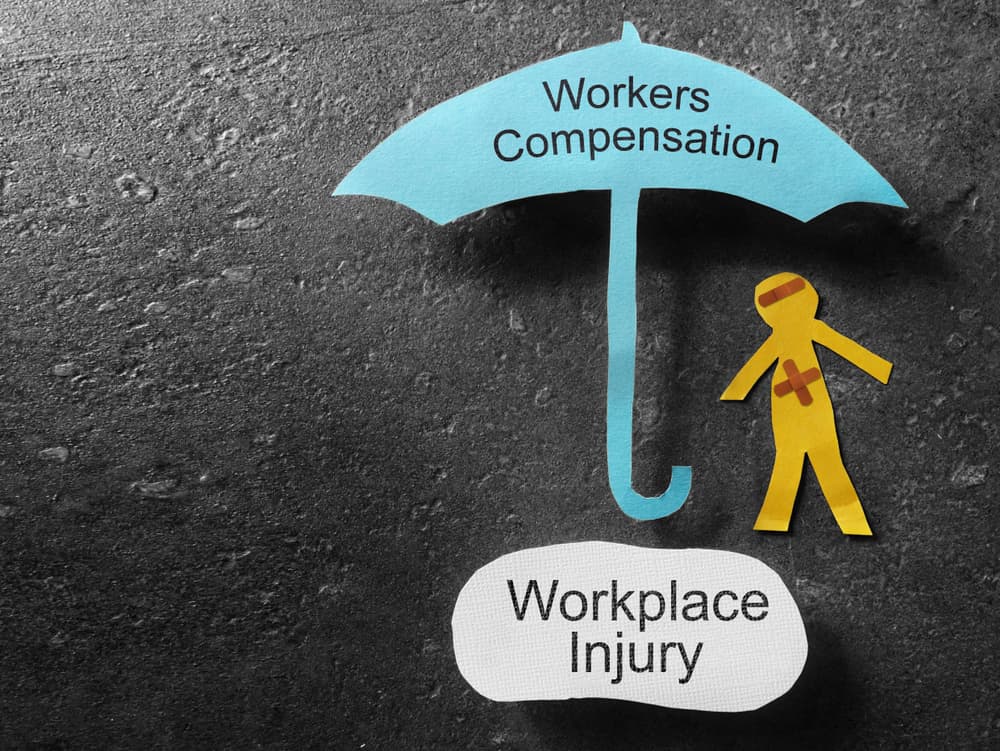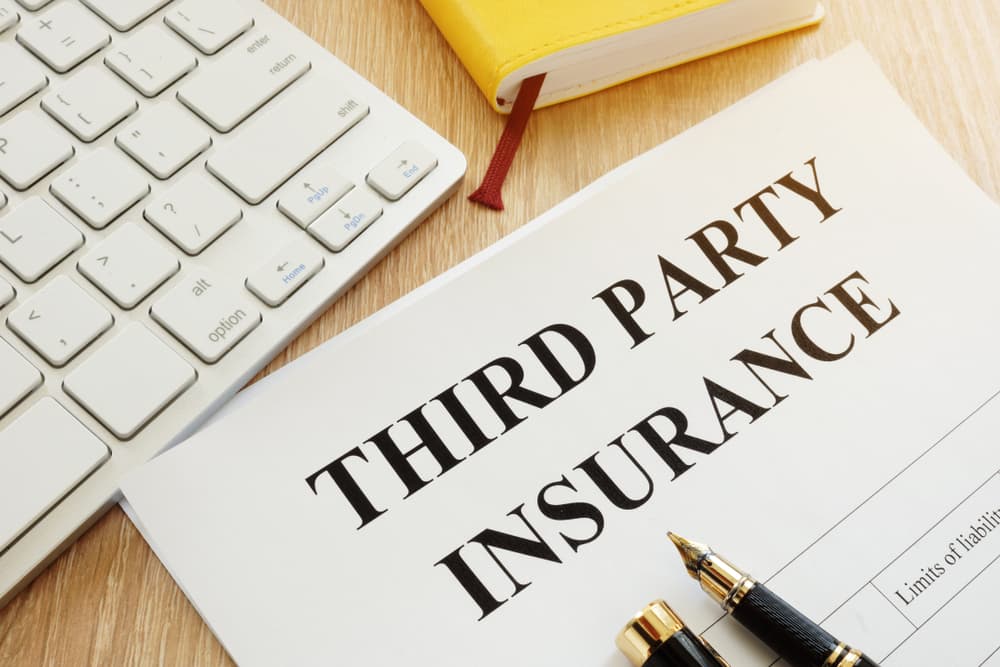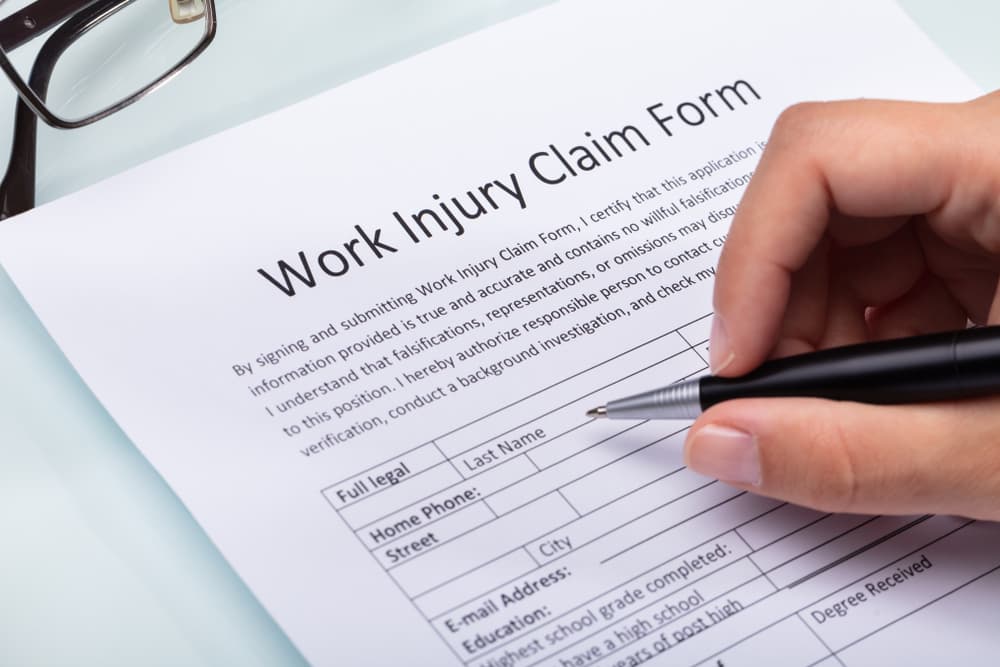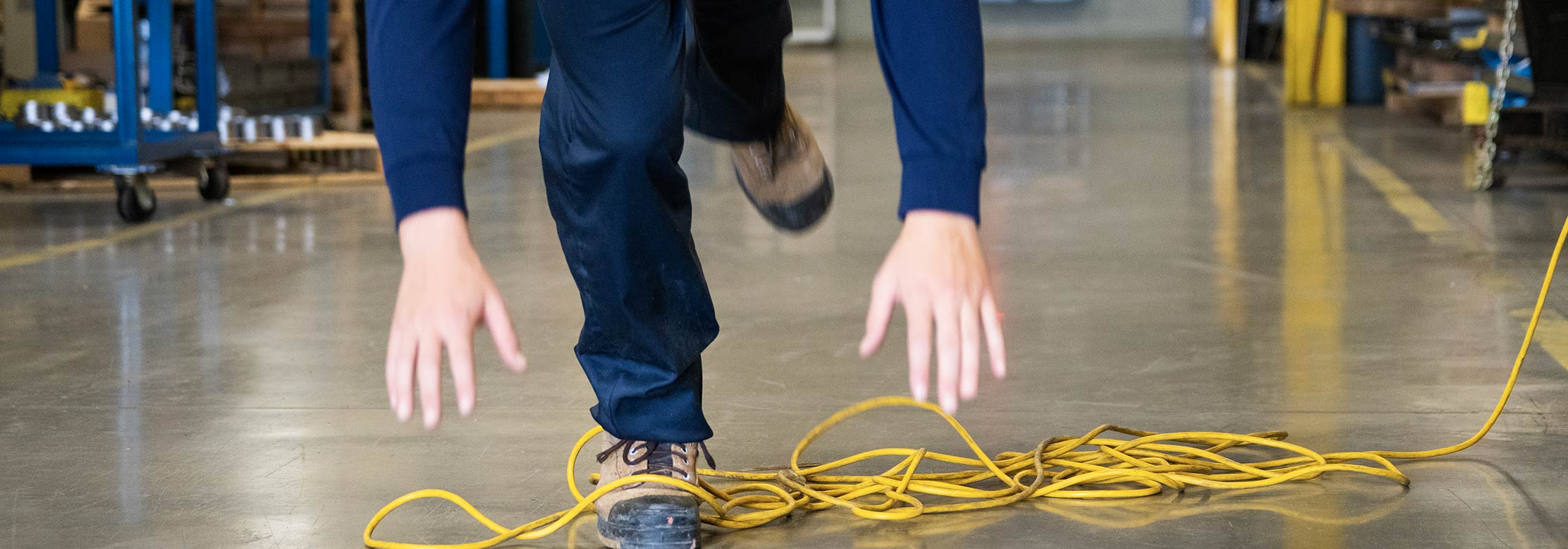Construction sites are dangerous places, and workers stand to suffer debilitating injuries while they are on the job. Injured workers may be eligible to recover various types of workers’ compensation benefits. Additionally, they can recover third-party damages based on someone else’s negligence.
An experienced workers’ compensation lawyer in your area can determine your eligibility for compensation and take the appropriate legal steps on your behalf.
Common Construction Site Accidents
Construction sites can be hazardous places, with various dangers that may lead to accidents and injuries. Here are some common construction-site accidents that workers may encounter:

- Falls – Falls are one of the most frequent causes of construction site injuries. Workers may fall from scaffolding, ladders, roofs, or other elevated surfaces. Lack of proper fall protection, such as guardrails or safety harnesses, can contribute to these accidents.
- Struck by Objects – Workers can be struck by falling objects, such as tools, materials, or debris. This can happen when items are not properly secured or when workers are in the path of moving equipment.
- Electrocution – Construction sites often involve electrical work, which poses the risk of electrocution if proper safety precautions are not followed. Contact with live wires or faulty electrical equipment can result in severe injuries or even fatalities.
- Caught in/Between Accidents – Construction workers may also become caught in or between objects or machinery, leading to crushing injuries or amputations. This can occur when working with heavy machinery, excavation equipment, or during trenching activities.
- Collapse of Structures – Structural collapses, such as walls, roofs, or trenches, can occur due to design flaws, inadequate support, or unforeseen hazards. Workers may become trapped or crushed under the debris, resulting in serious injuries or fatalities.
- Equipment Accidents – Operating heavy machinery and equipment on construction sites carries inherent risks. Accidents can happen due to equipment malfunction, improper use, or lack of training. These accidents may also cause injuries ranging from minor cuts and bruises to severe trauma.
- Exposure to Hazardous Substances – Construction sites may expose workers to hazardous substances, such as asbestos, lead, silica, or toxic chemicals. Prolonged exposure or improper handling of these substances can lead to respiratory problems, skin conditions, or long-term health issues.
- Slips and Trips – Uneven surfaces, wet conditions, or cluttered work areas may cause slips, trips, and falls. These seemingly minor accidents can still result in significant injuries, including fractures, sprains, or head trauma.
If you suffered injuries in one of these types of construction-site accidents, you should call a local workers’ compensation attorney right away about your options.
Types of Injuries that Construction Workers May Suffer While on the Job
Construction workers face a variety of risks while on the job, leading to potential injuries that can range from minor to severe. Here are some common types of injuries that construction workers may suffer in an accident:
- Musculoskeletal Injuries – These injuries affect the muscles, tendons, ligaments, and nerves, often resulting from overexertion, repetitive motions, or lifting heavy objects. Conditions like strains, sprains, and back injuries are prevalent among construction workers due to the physically demanding nature of their work.
- Fractures – Fractures, or broken bones, can occur due to falls, being struck by objects, or accidents involving heavy machinery. Fractures can vary in severity, from hairline fractures to compound fractures that break the skin and require surgery to repair.
- Open Cuts and Lacerations – Working with sharp tools, equipment, and materials puts construction workers at risk of cuts and lacerations. These injuries can range from minor cuts requiring first aid to deep wounds that may result in significant blood loss and require stitches or medical attention.
- Burns – Construction sites may involve hot work activities, such as welding, soldering, or using torches, which increase the risk of burns. Chemical burns can also occur from exposure to hazardous substances like acids or solvents commonly found on construction sites.
- Traumatic Brain Injuries (TBIs) – TBIs can result from falls, being struck by objects, or being involved in equipment accidents. Even with protective gear like hard hats, construction workers are vulnerable to head injuries that can have long-term consequences, including cognitive impairments and changes in behavior.
- Electrical Injuries – Contact with live wires, faulty electrical equipment, or improper use of electrical tools can lead to electrical shocks, burns, or electrocution. Electrical injuries can cause serious tissue damage, cardiac arrest, or neurological complications.
- Respiratory Injuries – Exposure to various airborne hazards – such as dust, fumes, or toxic chemicals – can lead to respiratory problems like asthma, bronchitis, or occupational lung diseases. Construction workers involved in tasks like demolition, excavation, or working in confined spaces are particularly at risk for these injuries.
- Crush Injuries – Workers can suffer crush injuries when caught in or between heavy machinery, materials, or collapsing structures. These injuries may cause internal organ damage, fractures, or even fatalities.
Employers have a responsibility to provide a safe work environment and lessen risks. However, when they fail to do so, serious accidents and injuries may result. If you suffered one or more of these injuries in a construction site accident, you should speak with a knowledgeable workers’ compensation lawyer in your area right away.
Recoverable Workers’ Compensation Benefits for Injured Construction Workers
When construction workers get injured on the job, they may be eligible for various workers’ compensation benefits to help them recover. Some of those recoverable benefits include:
- Medical Treatment – Workers’ compensation covers the cost of medical treatment related to the injury, including doctor visits, hospital stays, surgeries, medications, physical therapy, and rehabilitation services. This ensures that injured workers receive the necessary medical care to recover from their injuries and return to work.
- Disability Benefits – If an injury prevents a construction worker from returning to work or performing their job duties temporarily or permanently, they may be entitled to disability benefits. There are different types of disability benefits, including:
- Temporary Total Disability (TTD) – Paid when the worker is unable to work at all while recovering from their injury
- Temporary Partial Disability (TPD) – Paid when the worker can return to work but is unable to earn the same wages as before their injury
- Permanent Total Disability (PTD) – Paid when the injury results in permanent disability, preventing the worker from performing any type of gainful employment
- Permanent Partial Disability (PPD) – Paid when the injury results in a permanent impairment but does not prevent the worker from returning to work in some capacity
- Lost Wages – Workers’ compensation benefits can replace a portion of lost wages due to missed work while recovering from an injury. These benefits typically cover a percentage of the worker’s average weekly wage, helping them maintain financial stability during their recovery period.
- Vocational Rehabilitation – In cases where an injury prevents a construction worker from returning to their previous job, workers’ compensation may provide vocational rehabilitation services to help them transition to a new job or career. This can include job training, education, job placement assistance, and counseling services.
- Death Benefits – If a construction worker dies as a result of a work-related injury or illness, their dependents may be eligible for death benefits. These benefits can include compensation for funeral expenses and ongoing financial support for the deceased worker’s dependents, such as spouses and children.
Workers’ compensation benefits are designed to provide financial support and assistance to injured construction workers and their families during difficult times. By understanding their rights and seeking appropriate legal guidance, injured workers can ensure that they receive the full benefits they are entitled to recover under the law.
Third-party Claims Arising from Construction Accidents
Construction accidents can lead not only to workers’ compensation claims but also to third-party claims against parties other than the employer. Here are some common types of third-party claims that may arise from construction accidents:
- Manufacturer Defects – If a construction worker suffers an injury due to a defective tool, equipment, or machinery, they may have a third-party claim against the manufacturer or distributor of the defective product. This can include defects in design, manufacturing or warnings about the product’s proper use.
- Subcontractor Negligence – In multi-employer worksites where multiple contractors or subcontractors are involved, a construction worker injured due to the negligence of another subcontractor or contractor may have a third-party claim against the responsible party. This can include situations where one subcontractor’s unsafe work practices or failure to adhere to safety regulations directly contribute to the accident.
- Property Owner Liability – In cases where a construction worker suffers an injury on property owned by someone other than their employer, such as during renovation or maintenance work at a commercial or residential property, they may have a third-party claim against the property owner for negligence. This can include failure to maintain a safe work environment, address known hazards, or provide adequate warning of dangers on the property.
- Architect or Engineer Negligence – If a construction worker suffers an injury due to a design flaw, inadequate planning, or negligent supervision by an architect or engineer, they may have a third-party claim against the responsible design professional. This can include errors in the design of structures, failing to account for safety considerations or improper supervision of construction activities.
- General Contractor Liability – If a general contractor on a construction site contributes to or fails to address unsafe conditions that lead to an accident, the injured worker may have a third-party claim against the general contractor for negligence.
- Negligent Hiring or Training – If a construction worker is injured due to the negligent hiring, training, or supervision of personnel by a subcontractor, contractor, or employer, they may have a third-party claim against the responsible party for failing to ensure that workers are adequately trained, qualified, or supervised to perform their job safely.
An experienced workers’ compensation lawyer in your area can determine your eligibility for filing a third-party claim or lawsuit after your accident.
Recoverable Third-party Damages in Construction Accident Cases
In construction accident cases, there are specific types of compensation that injured workers can pursue from third parties beyond what they might receive from workers’ compensation. Here are some examples:

- Related Medical Expenses – If a construction worker’s injuries result from a third party’s negligence, they may be able to recover medical expenses not covered by workers’ compensation. This can include costs for surgeries, hospital stays, doctor visits, medications, physical therapy, and other necessary medical treatments related to their injury.
- Lost Wages and Future Earnings – In addition to workers’ compensation benefits, injured construction workers may seek compensation for lost wages and future earning capacity from third parties responsible for their injuries. This can include compensation for time missed from work due to the injury, as well as any future loss of income resulting from permanent disability or reduced earning potential.
- Pain and Suffering – Injured construction workers may be entitled to compensation for pain and suffering due to their injuries, including physical pain, emotional distress, and mental anguish. This type of compensation is often awarded in cases involving severe injuries or long-term disabilities that significantly affect the victim’s quality of life.
- Loss of Consortium – If a construction worker’s injuries affect their ability to maintain relationships with their spouse or family members, their loved ones can pursue compensation for loss of consortium. This can include damages for the loss of companionship, affection, support, and services that the injured worker would have provided to their family if not for their injury.
- Punitive Damages – In cases where a third party’s actions are deemed particularly reckless, egregious, or intentional, injured workers may be awarded punitive damages in addition to compensatory damages. Punitive damages are intended to punish the wrongdoer and prevent similar misconduct in the future.
- Property Damage – If a construction accident results in damage to the worker’s personal property, such as their vehicle or tools, they can recover compensation for the cost of repairing or replacing the damaged property from the responsible third party.
By pursuing third-party compensation in addition to workers’ compensation benefits, injured construction workers can seek fair compensation for their losses and hold negligent parties accountable.
Talk with an Experienced Workers’ Compensation Lawyer Today
If you suffered injuries in a recent construction accident, an experienced workers’ compensation lawyer can help. Your lawyer can file a timely claim on your behalf, pursue the benefits you deserve, and represent you during all legal proceedings. Your lawyer can also pursue various third-party damages in your case whenever possible, helping you obtain the complete justice you deserve.







